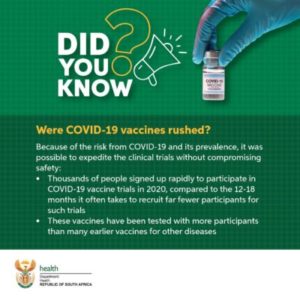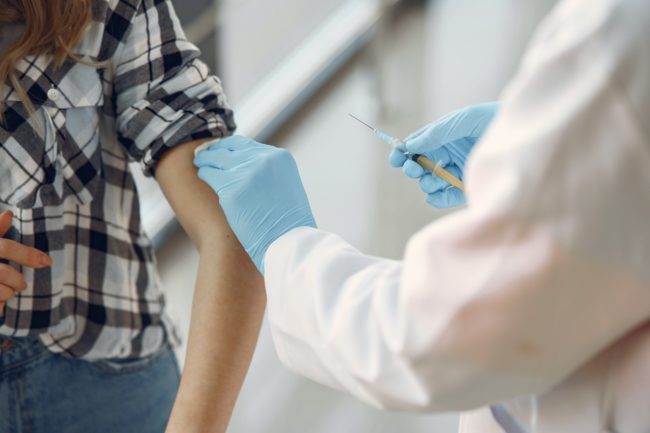We have been on an incredible ride since Business for South Africa (B4SA) was formed last year. As an alliance of volunteers from South African business, we have supported the numerous government-led COVID-19 pandemic interventions and worked closely with the Solidarity Fund, civil society, and our partners in labour, to combat its effects.
Last year, we had multiple focus areas that coordinated activities across business, including health, labour and the economy, as well as supporting legal, communications, innovation, and risk interventions, that provided inputs to inform policymaking in support of government. We also developed comprehensive proposals for an Economic Recovery Strategy, with inclusive deliberations at Nedlac resulting in some parts of the strategy being formulated into government’s recovery plans.
Over recent weeks COVID-19 infections have surged, and South Africa faces the unprecedented challenge of vaccinating her people. We have therefore resolved to reshape B4SA to have a singular focus – supporting the national vaccine programme under the leadership of the national government.
We have spent the better part of the past three weeks finalising and resourcing structures to support and facilitate this rollout effort. This includes engagement at various levels of government to discuss and assess the current vaccine rollout plans and identify risks and omissions, while also indicating where best we can provide support.
These discussions have been productive. Tremendous progress has been made in a very short timeframe. We have appointed a B4SA team that – under the leadership of the national Departments of Health and Finance – will provide the strategic direction for this process. We are members of the National COVID Vaccine Coordination Committee, which is led by the NDoH.
We have made progress on outlining the funding and other resource contributions that will be needed from business, including interfacing with the Solidarity Fund to collect and disburse the funds, where appropriate. Excellent progress has also been made on initiating the logistics and distribution arrangements, as well as plans to ensure the readiness of various facilities and institutions across the country to accept the vaccine, on arrival.
The bulk of this work is flowing through five workstreams:
- Planning, integration and implementation (which reviews the overall vaccination strategy and coordination of PMO support);
- Vaccine logistics, cold chain and distribution (which is developing a vaccine distribution plan for the public and private sector for use by Biovac and possible third-party distributors, and is progressing a supply chain risk plan to enable proactive risk mitigation);
- Service delivery platforms and vaccine delivery readiness (which coordinates the establishment of vaccination sites and standard operating procedures);
- Coordination of costing and funding (which is quantifying national funding requirements and assesses the timing of the funding needs, as well as flow of funds and payment mechanisms); and
- Communications (which supports the development and rollout of the communication strategy and participates in relevant government, civil society and labour communications forums).
Four supporting working groups will provide guidance and input across all B4SA and NDoH streams, as and when required:
- Legal and regulatory (providing legal expertise across all workstreams);
- Information systems, monitoring and evaluation (is setting-up the required systems and multichannel platforms for the immunisation programme, and provides technical expertise and support to government’s vaccination systems);
- Risk assurance (which pressure tests rollout plans and will setup a risk registry, while also advising government on mitigation strategies for key risks); and
- Public health, ‘pharmaco’ vigilance and disease surveillance (that will support the government in the tracking, detection, assessment, monitoring and prevention of adverse effects from vaccine inoculation).
Working closely with their relevant NDoH, Treasury and GCIS counterparts, each workstream is clear on the support required and their scope of work. There is also close interaction underway between NDoH and Treasury to determine funding support required, and approaches to mobilise donations while coordinating with the Solidarity Fund to manage the funds, where appropriate.
Governance structures are in place to ensure compliance in the interactions between the B4SA workstream and the respective government streams.
There will be no end to the pandemic, nor the beginning of an economic recovery without a comprehensive, effective, and urgent national vaccination programme. The cost of a vaccination programme is dwarfed by the human and economic cost of an unchecked COVID-19 pandemic.
We have been repeatedly struck by the nation’s public spirit and commitment since the COVID-19 pandemic began and overwhelmed by the many hundreds of individuals and businesses offering support.
We are also extremely grateful to the South African business sector and how it is mobilising its expertise and resources to work with government and all stakeholders to support the national vaccine programme – which in time will prove to be the light at the end of a long, dark tunnel.
Thank you for your ongoing commitment to the country and B4SA. This is an unprecedented challenge to our nation’s health and development, and we are extremely grateful for your contribution to this cause.
We will keep you updated on a regular basis.
Thank you once again.

WILLINGNESS TO TAKE A COVID-19 VACCINE: A RESEARCH BRIEFING
Read the UJ-HSRC COVID-19 DEMOCRACY SURVEY here
Executive summary
- Findings come from the largest and most comprehensive survey on people’s willingness to take a Covid-19 vaccine.
- 67% said they would definitely or probably take a vaccine.
- 18% said they would definitely not or probably not take the vaccine.
- 15% were unsure if they would take the vaccine.
- Race, education and age play a role in shaping vaccine acceptance.
- White adults tend to be least accepting of a Covid-19 vaccine; 55% say they would take the vaccine compared to 69% of Black African adults.
- Those with less than matric-level education were generally more open to receiving a vaccine (72%) than those who have completed matric (62%) or have a tertiary education (59%).
- Support for vaccination increases with age.
- Political discontent plays a role. People who think President Ramaphosa is doing a bad job are much less likely to want vaccination, only 36%, compared to 73% for those stating he was doing a good job.
- The most common explanations that people gave for wanting to vaccinate were to protect oneself (29%), closely followed by the desire to protect others (25%).
- For those who were either unsure or against taking the vaccine the most common explanations related to concerns about side-effects (25%) and concerns about the overall effectiveness of the vaccine (18%). Explanations related to conspiracy theories or the occult did not appear frequently, 7% and 4% respectively.
FOLLOW US ON SOCIAL MEDIA
https://twitter.com/businessforsa
https://www.facebook.com/Business-for-SA-110191343959451/
https://www.linkedin.com/company/businessforsa
